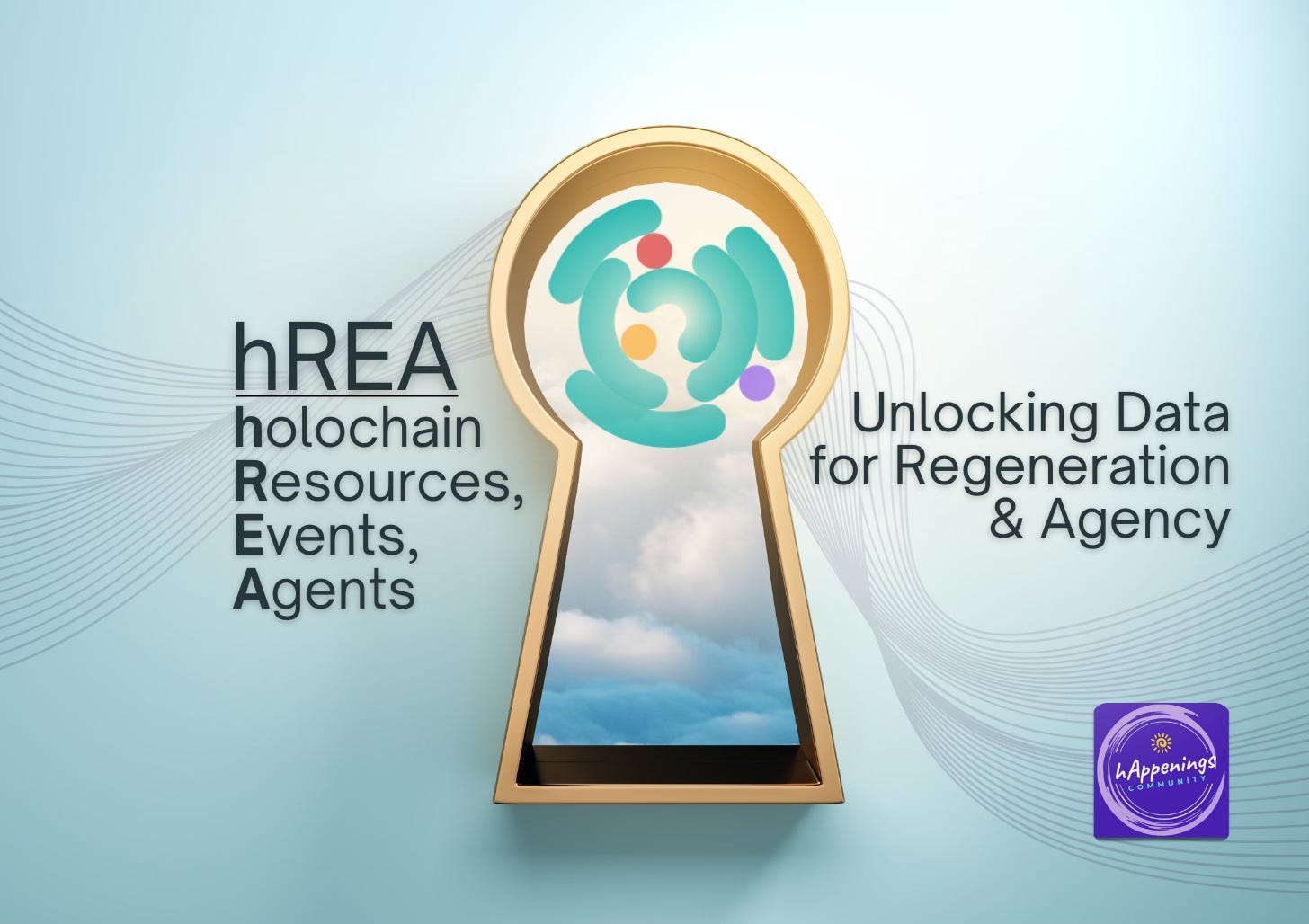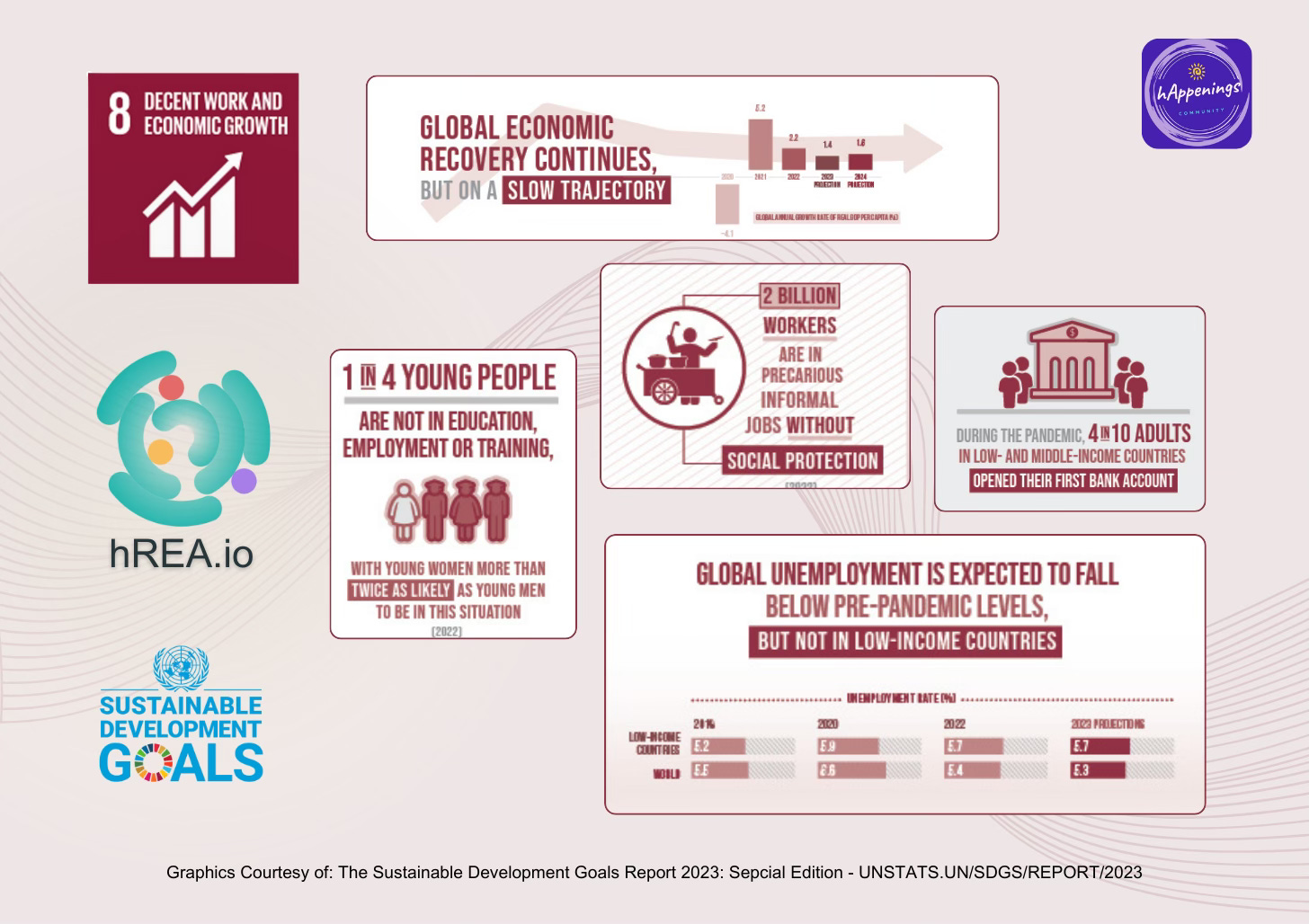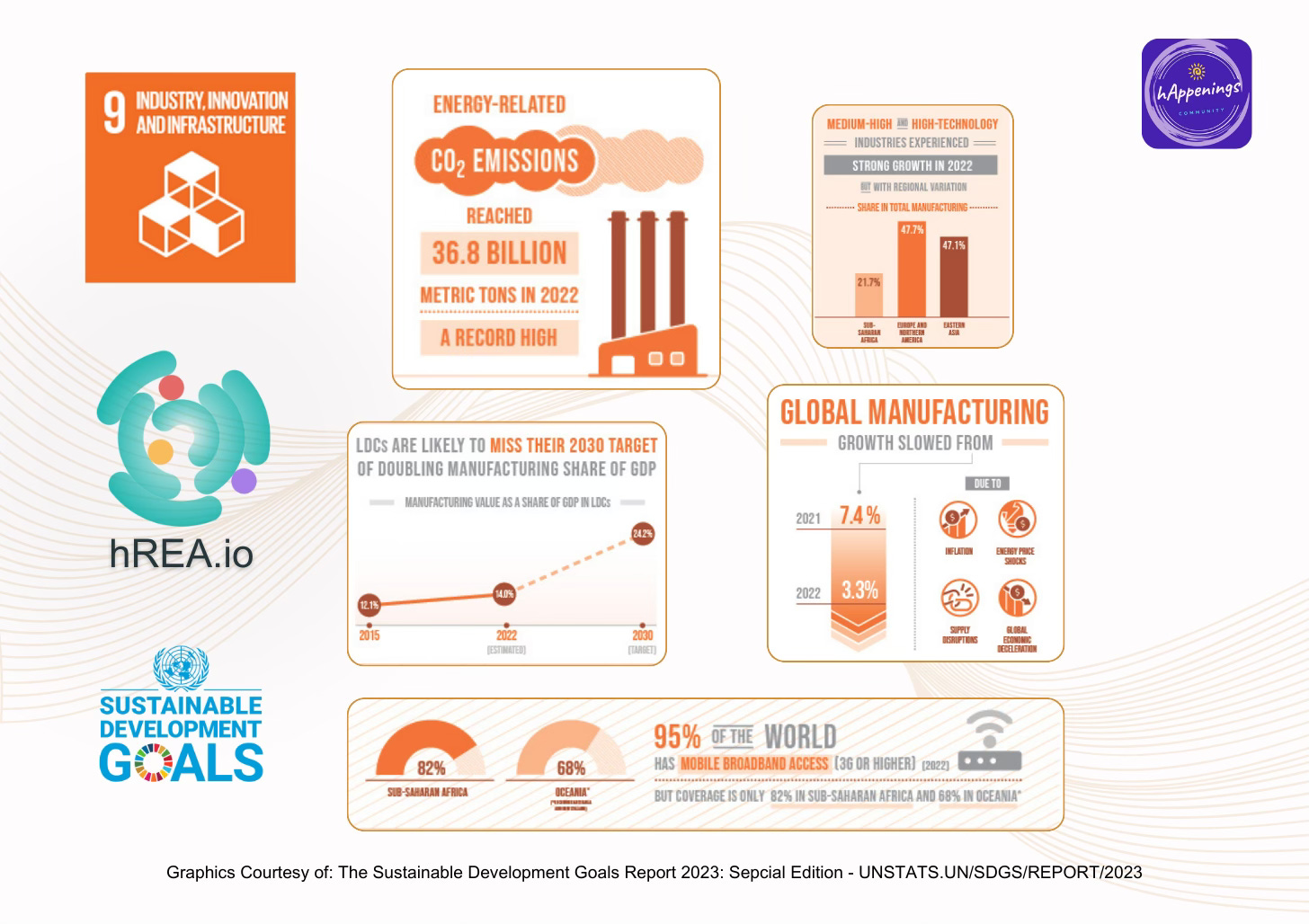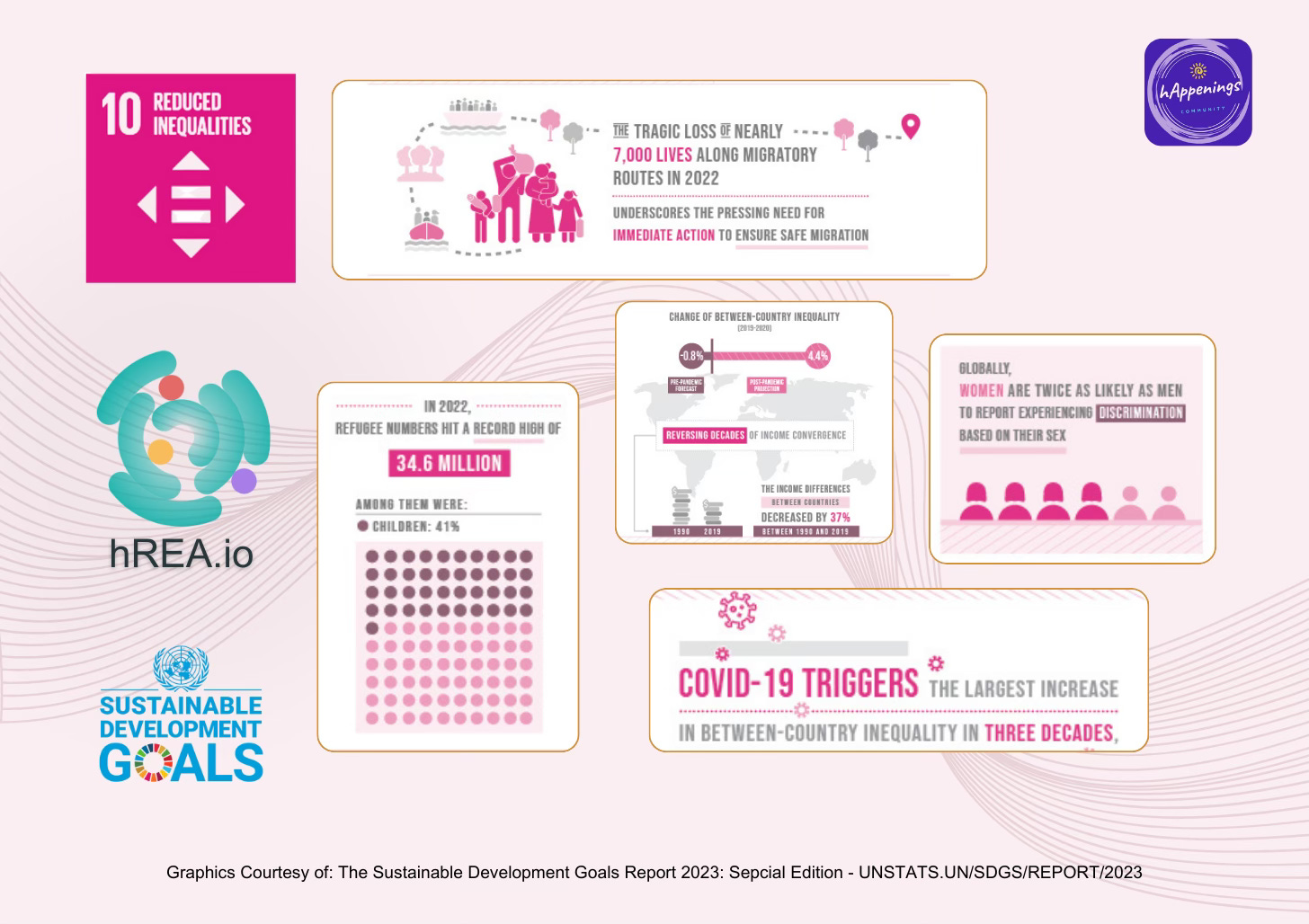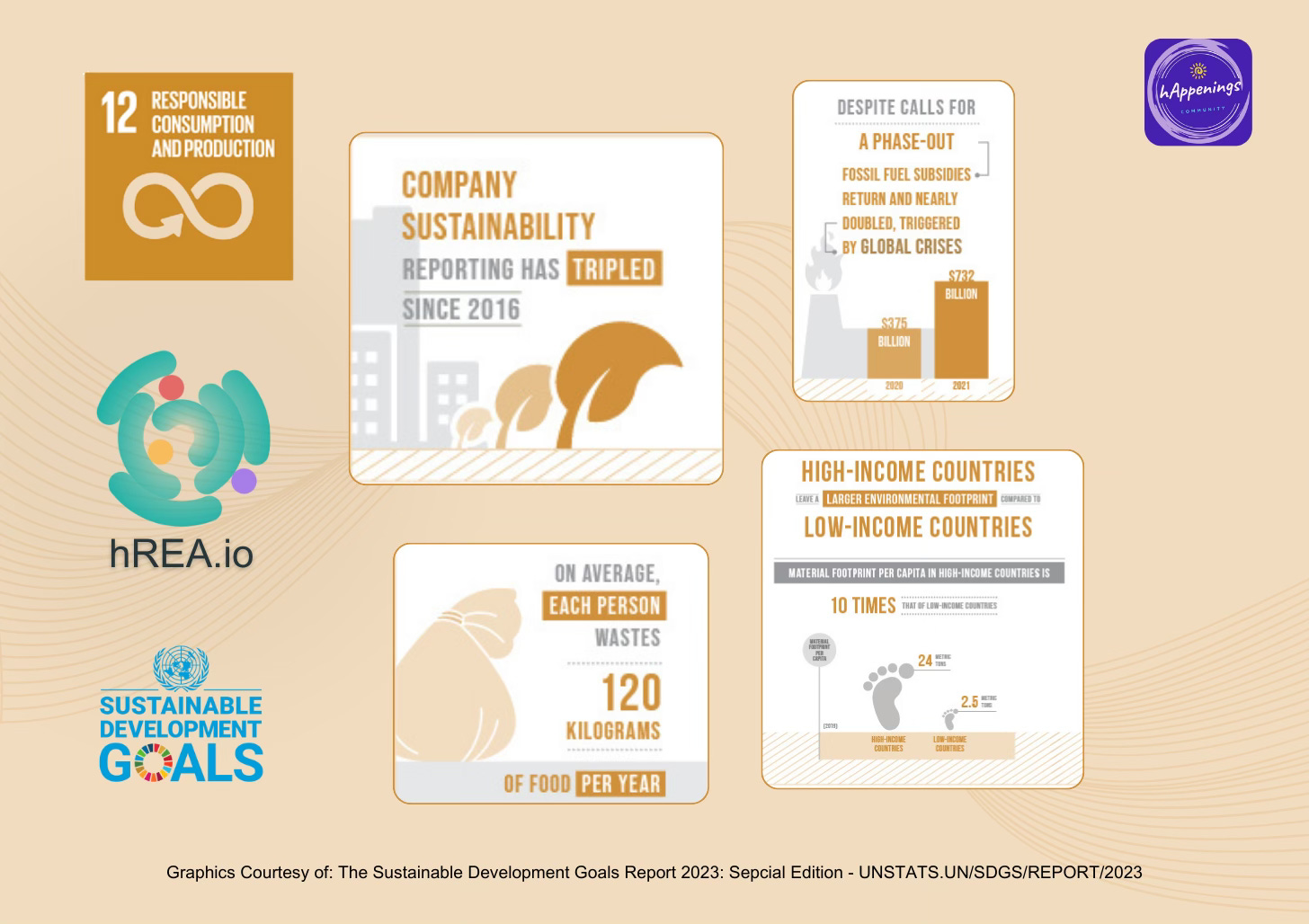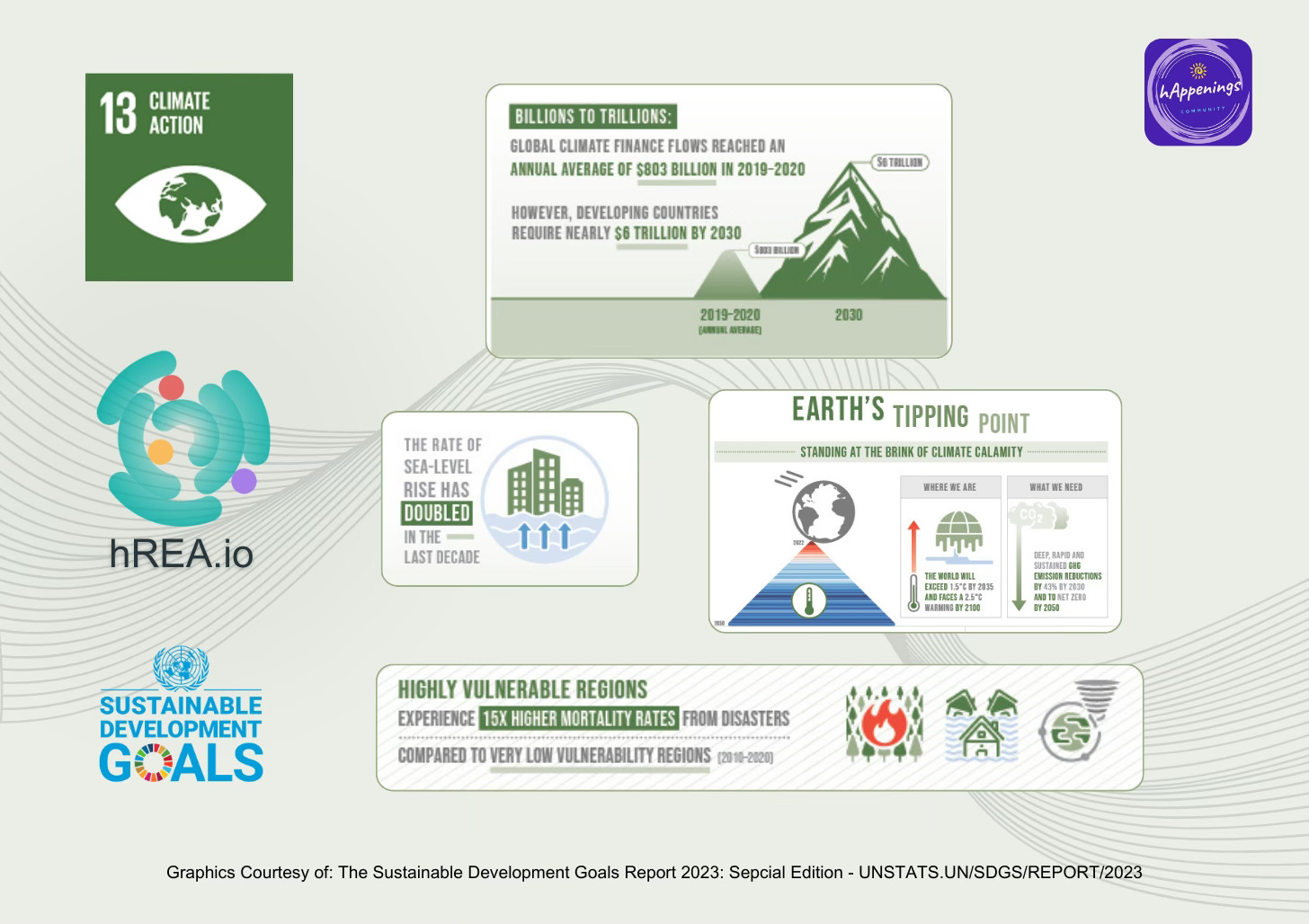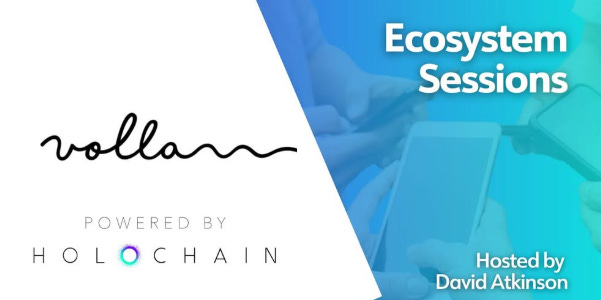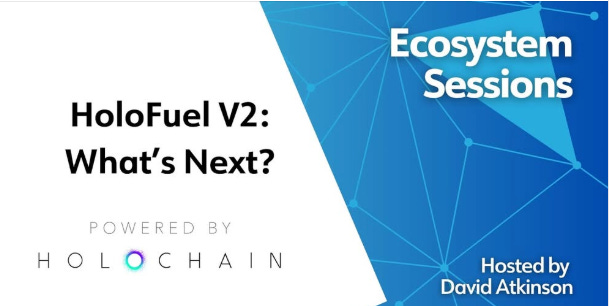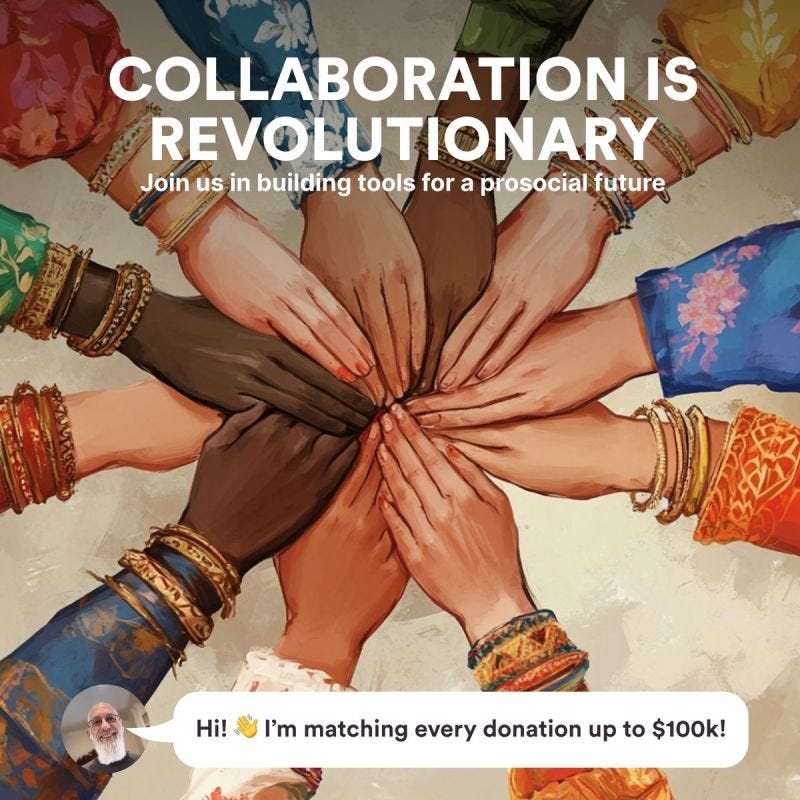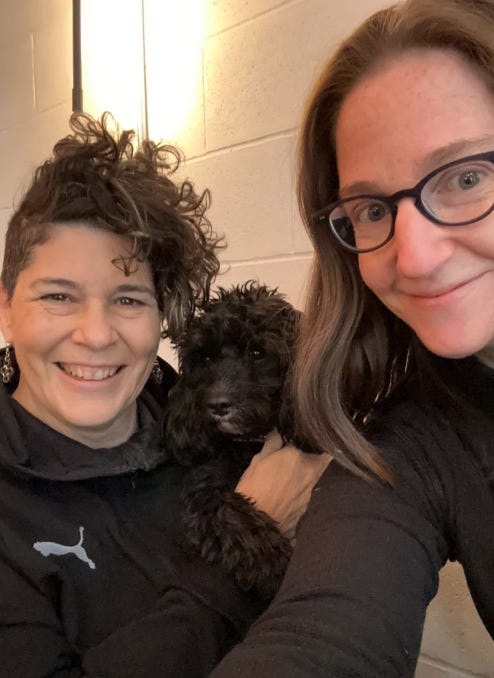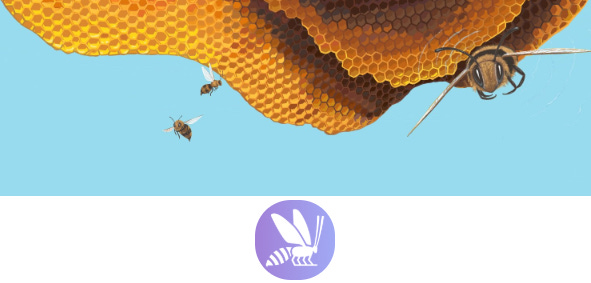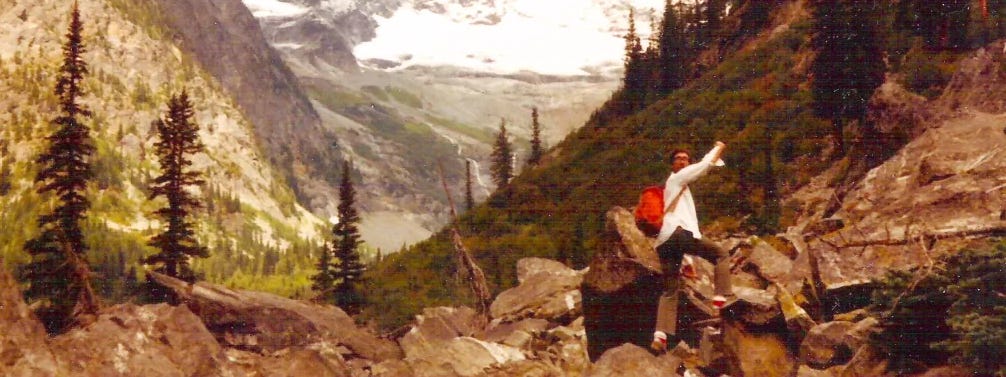In April of 2023, Bob Haugen, hREA and Valueflows, shared his article, Coordinate All the Flows, with us. It clearly explains the Resources, Events, Agents protocol that’s based on the Valueflows ontology. Illustrated examples describe how it could be applied to textile supply chains. It’s not necessary reading, but it is enlightening! We’d like to thank Bob Haugen and Lynn Foster for their dedication to advancing this remarkable ontology, their gracious explanations of it, and their support for hAppenings.community. We’re pleased to dedicate our 50th newsletter to them both.
Tools like hREA (Holochain Resources, Events, Agents) are not just innovations, they can be catalysts for systemic change. Grounded in decentralization, transparency, and collaboration, hREA offers an open-source framework for reshaping how we track Resources, Events, and Agent relationships across industries and domains. When considering its transformational potential in terms of the United Nations Sustainable Development Goals (UN SDGs), the EU’s ESPR circular economy plans and their supply chain visibility program Digital Product Passports (DPPs), hREA reveals its ability to spark profound shifts in how we relate to the economy, the environment, and each other. You can do all of this.. and run your apple pie bakery with hREA! (Bob Haugen’s ‘story’ about yummy pie, made by a distributed network!)
hREA is a Holochain encoded framework of Valueflows (VF), a vocabulary designed to support economic coordination inside and between organisations, which could be of any type or structure.
“hREA supports production of goods and services and knowledge, and also reciprocity between Agents, whether using money or not. Ecological Agents, as part of the network, can be accounted for.” - Lynn Foster
With hREA’s unique adaptability and a holistic attitude to planning and recording economic activity, externalities can be made visible as Resources that need to be managed.
hREA is written as generic "backend" software. Application developers can use an API to integrate the economic network data into their "frontend" (UI) giving Agents the ability to interact with it. By providing a structure to the data, hREA, makes it interoperable across domains, industries, economies and networks. Agents will be able to use those applications to work with the data in all sorts of useful ways; analysing it to plan work and exchanges, recording and updating their own inputs, etc. It will be like plugging into an economic data stream, and choosing what data you query, track, visualise and share.
At the heart of hREA lies the principle of ‘interconnectedness’ or interoperability, which mirrors the regenerative ethos: ecosystems flourish when every element is nurtured and valued. Traditional economic models prioritise extraction and linear consumption, often reducing resources to lifeless commodities, ignoring the impact on the environment and communities. hREA, by contrast, emphasises resource lifecycle tracking in its entirety. Each Resource, whether a raw material, product, or byproduct, can be traced through its creation, use, reuse, and eventual recycling or composting - each Event in the product’s lifecycle can be mapped.
This level of granular visibility enables industries to adopt circular economy principles, turning waste into inputs and fostering regeneration. Consider, for instance, an electronics manufacturer using hREA to track rare earth metals. Through clear, decentralized data, these materials can be recovered from discarded devices and reintegrated into production, reducing the need for new mining, a practice that devastates ecosystems and communities.
On a broader scale, hREA can support local resilience. By decentralizing economic interactions, communities can build localized Resource-sharing networks, creating regenerative systems rooted in mutual care rather than dependence on globalized supply chains. Imagine a neighborhood cooperative sharing energy, food, or tools through hREA’s agent-based transparency, strengthening ties and ensuring sustainability at the grassroots. That cooperative could choose to connect with those global supply chains, that are using hREA, for their DPPs. Now, Agents in the network will be able to offer their output, based on their individual or collaborative efforts, ensuring their needs are met by making them visible.
Advancing the UN Sustainable Development Goals
The UN SDGs call for transformative change across economic, environmental, and social systems, and hREA can provide a technical foundation to accelerate progress toward these global objectives.
Click each image to learn more!
Goal 8: Decent Work and Inclusive Growth
By transparently tracking Resources and Events, hREA empowers Agents; worker, small businesses, etc to verify their participation in global supply chains, ensuring they receive equitable compensation. For instance, in agriculture, smallholder farmers will be able to use hREA to prove the origin and quality of their produce, securing better market access and pricing without relying on exploitative intermediaries. By fostering peer-to-peer collaboration, hREA can support the emergence of local, self-reliant economies where workers and entrepreneurs thrive under conditions of mutual trust and shared prosperity.
Goal 9: Strengthening Innovation and Resilient Infrastructure
hREA can promote sustainable industrialization by enabling transparency and efficiency in resource use, offering the foundation for resilient infrastructure and innovative systems analysis. Its decentralized architecture allows industries to build interoperable networks that minimize waste and optimize shared resources across borders and sectors.
Goal 10: Reduced Inequalities
hREA decentralizes economic power, supporting Agents to realise their own agency and participate in global markets. Farmers, artisans, and small businesses can record and verify their contributions to supply chains without relying on intermediaries, which can facilitate equitable compensation.
Goal 12: Responsible Consumption and Production
With hREA, organizations will be able to track their Resource flows, documenting the environmental and social impacts of each Event. Transparency helps consumers make informed choices, aligning purchasing power with values such as sustainability and equity.
Goal 13: Climate Action
The tracking of emissions and resource use becomes possible with hREA’s event recording: individual data points can be translated into economic Events. For example measuring carbon added to soil, by comparing samples over time, could provide the substantive data needed for Agents to genuinely offset their carbon footprint. Consider a real-time carbon credit exchange that dynamically adapts to ensure that a supply chain remains regenerative.
hREA makes it possible to track much of the data that's needed to meet the UN's SDGs, giving impetus to sustainable development programs
Supply Chain Visibility, Provenance, and EU Digital Product Passports (DPPs)
The European Union is advancing its DPP initiative under their Circular Economy Action Plan, and hREA is an ideal data model to meet their needs. The DPP aims to make product information and provenance, including origin, material composition, and appropriate recycling pathways accessible throughout the supply chain and to end-users. This level of transparency is essential for meeting EU sustainability goals as well as fostering consumer trust. Despite repeated delays, due to technological hurdles, they are pushing ahead with implementation, stating that all products imported in the EU will need DPPs from next year.
hREA’s Event-reporting architecture is well suited to the DPP initiative. Two EU projects, Fab City and Reflow Project, have implemented DPPs using the same Valueflows ontology (as used in hREA) for their own software. Each Resource, or product, recorded in an hREA-based system generates an immutable record of every interaction or Event. From sourcing raw materials to final disposal, for supply chains, this means:
Real-time insights: Manufacturers can track their materials across borders and processes, ensuring compliance with EU regulations.
Fraud prevention: Distributing the supply chain data in a cryptographically secured ledger prevents the tampering of data and identification of forgeries, offering a reliable audit trail for all stakeholders.
Consumer empowerment: End-users can scan a product’s digital passport to understand its environmental footprint and ethical considerations, making choices aligned with their values.
For instance, a fashion brand adopting hREA could provide consumers with access to the entire lifecycle of a garment: revealing the origin of cotton, the working conditions of farmers, factory workers, shipping details and even how the item can be recycled once it’s worn out. This transparency doesn’t just fulfill regulatory demands but it also strengthens brand loyalty where authenticity is currency. As end-users, we’ll have the choice to refuse to use a product or service based on the supply chain that’s being made visible using hREA’s open-source data model.
As consumers, we face the paradox of an overabundance of information alongside deep uncertainty about what’s trustworthy - greenwashing is rampant. hREA addresses this, like all Holochain applications (hApps), by distributing data ownership and verification to the Agents it’s relevant to. Instead of relying on corporate claims or opaque certifications, we’ll be able to interact directly with a transparent record of a product’s journey.
This reshapes the dynamics between consumers and producers. Rather than operating in opposition, both parties become collaborators in a shared ecosystem of accountability. Producers gain tools to demonstrate integrity, while consumers wield genuine power to reward ethical practices.
Amid growing calls for more equitable systems, hREA offers more than a technical solution. It creates a shift in thinking. Its focus on relationships, flows, and systems move us from the linear paths of extraction and consumption toward a regenerative, interconnected future.
****
Please consider supporting hREA with funding to help pay the developers who have learned the building essential open-source applications.
Useful Links
Carbon Farm Network hREA Video Demo
Open Collective Donations Page
🌟 Latest News from hAppenings.community
Join us in celebrating this, our 50TH edition of our “What’s hAppening?” newsletter! We are deeply grateful for all those we’ve had the pleasure of interviewing this year and to the Holochain Community for their kind support.
If you feel so moved, we’d certainly appreciate any donations to support this work of collecting, connecting, and informing you about the amazing growth of the Holochain Ecosystem. It’s small donations that help keep us rolling along, which we hugely appreciate!
If you’re new to “What’s hAppening” and the hAppenings Community, WELCOME! We invite you to explore our website, hAppenings.community, our Holochain Project Database (searchable), and we would love if you would join our Discord Server!
Also, if you’ve you’d like to see a type of retrospective of Holochain projects, check out the back issues of this newsletter. It’s rather amazing! And we always appreciate new subscribers! Thanks, Anita Halcyon & Sam Turner!
🌟 Latest Official News and Events from Holochain and Holo
Ecosystem Session w/ Dr Jörg Wurzer of Volla Systems and Eric Harris-Braun of Holochain. All about why Holochain is on a smartphone and what their vision for the future is (hint: meshnets on phones?)
Ecosystem Session: - HoloFuel V2: What's Next featuring: Art, David, Jarod, Matt on HoloFuel v2 and the new plans for a consortium of DePIN services underpinned by one mutual accounting system (think airline alliances, but for hosting, WiFi, and lost devices)
Other Holochain updates - 5 Dec 2024
-The Holochain core team shipped Holochain 0.3.6 which fixes build/run issues on Windows caused by sysinfo, a third-party library. A new hc-scaffold for all releases fixes some Svelte template errors too.
-Work on streamlining Holochain's gossip layer is moving along quickly. As reported before, this should make it faster, more predictable, easier to debug. As a side benefit, it also decouples it more from Holochain, making it an interesting alternative to IPFS for ppl who don't need the full Holochain experience.
-Catch work on Holochain Core as it happens: devs might want to watch our GitHub project tracker (this is a more useful view than the roadmap we posted a couple weeks ago)
-If you're using the old Holonix dev environment, it's time to switch to the new one, which makes it easier to target alt versions and pull in deps. And we're deprecating the old one for Intel Macs due to upstream package issues.
Join Holochain.org’s Developer Portal: https://developer.holochain.org/
For a complete listing of all of the Holo Ltd and Holochain Foundation events go to their ‘Upcoming Events’ page!
🌟Latest News from the Holoverse:
Update from Siddharth Sthalekar from Neighbourhoods
Thanks, Web3NZ for organizing a fantastic event, and to those who supported us with their votes! Pleased to say we were runners-up in the 'Startup of the Year' category, pretty exceptional for our first year in this community!
Stoked to meet and engage with all the amazing projects, stakeholders and players in this ecosystem. I look forward to so much more in the years to come :)
Update on Hylo - from Tibet Sprague
Hylo has been offered an incredible $100k matching grant by a community member! Help us bring to life a healthy alternative to existing social platforms, one that grows cooperation, solidarity and social coherence instead of breaking us apart Anything you give will go a long way!
An update on our progress/process:
We have established a beautiful relationship with the NoVo Foundation, with whom we are building the bioregional organizing tool kit 🌱 With their first grant in June we embarked on a redesign process, and will be re-launching a much improved Hylo early in 2025, ready for all your purposeful community organizing!
Another similar platform, Crew For All, is gifting itself to us, along with its remaining funds, to help us build out the features it has that we do not yet have—specifically, simple Learning Management tools to help run courses/programs on Hylo. This is something people have been asking us for, and it is an incredible and unheard-of gift.
Between next year's anticipated NoVo grant, the Crew for All gift, and this matching grant, we almost have what we need for the next year of work on Hylo! All we need is to hit this $100k match by the end of the year. There is nothing I enjoy less than asking my community for money, and I truly believe this is the last time we will be doing so for Hylo. We have some powerful momentum, come join us in building the cooperative future together!
Update: Adam Bumpus of IOEN
(Two weeks ago), I had the honour of speaking to an amazing group of senior procurement professionals at the IMPACT! Procurement Conference on the incredible opportunity for procurement professionals to help influence up to 40% of global emissions. Thank you to the awesomely persistent Matt Perfect for the invite. It was an inspiring reminder that those not in specific climate positions play a pivotal role in driving systemic change.
Then on Wednesday night, I was lucky enough to present at SEVENTEENx at University of Melbourne with an invite from Mick Hase - introducing a new model that we call the ClimatetechIkigai - a framework that blends personal development, sustainability motivation, and technology choices to help us act with care, compassion, and courage. (LinkedIn)
Progress in Motion - From Liz Sweigart, PhD
This weekend, I met up with Mary Camacho (and her wonderful pup Lumi) to work on our new venture powered by Holochain. Collaborating in person was a great chance to refine ideas and make meaningful progress on what we’re building together.
We’re currently in stealth mode, but here’s what I can share: we’re developing a product that instantly authenticates the digital documents driving people’s most critical decisions. It’s an exciting challenge, and we’re committed to creating something that delivers real value.
Watch this space (LinkedIn) for updates as things evolve. If you’re interested in learning more, feel free to reach out—I’d be happy to connect when the time is right.
Blog & Video: Beyond Platforms: Building True Digital Sovereignty - A Founder's Update by Nick Haslem
Good morning and welcome to another update from the HummHive team, coming to you directly from me, Nick Haslem, the founder.
🌟Other Related News & Events
Article: Toward a Commons Culture with Paul Krafel - Referred by Lucas Tauil
Paul Krafel's latest essay, Toward a Commons Culture is exceptional. I listened to it three times using 11th reader. (LinkedIn)
Do You Have News & Updates?
If you are a team member of a Holochain Project and would like to share your latest news and updates, please…
If you have a question, request, or simply a desire to connect more about hAppenings.community please click the link above!




